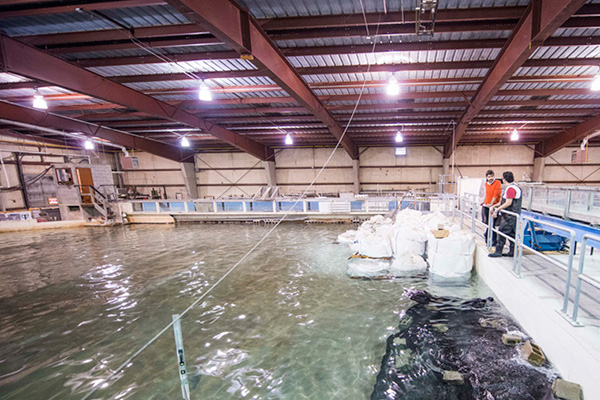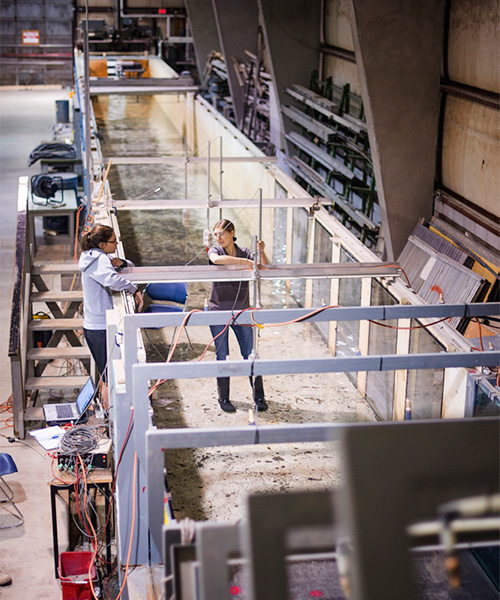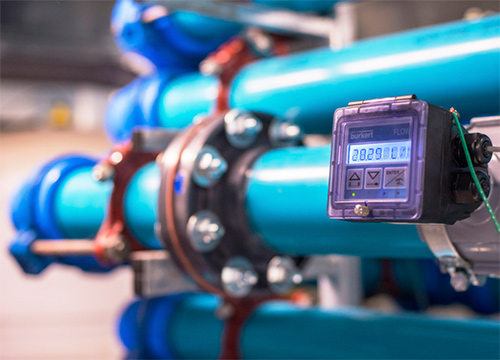The Hydrotechnical Group in the Department of Civil Engineering conducts fundamental and applied research on surface water dynamics and water supply, with particular emphasis on the coupling between hydrodynamics and the transport of particles and sediments, including bed (geo) morphology and water quality. Research focuses on rivers, coastal regions, lakes, and water distribution systems, primarily through large-scale, research-driven physical modelling at the 2,000-squaremetre Queen’s University Coastal Engineering Research Lab (QUCERL) (see Figures 1 and 2).
The lab features some of the largest prototype facilities in the world (landslide driven tsunami flume; coastal internal wave tank; large-scale water distribution system for examining drinking water discolouration and biofilm growth in pipe) and in Canada (river model facility; sediment transport flume; wave basin; Coriolis table). Experimental research is complemented by state-of the-art computational modelling and field observation in collaboration with government agencies.
Emerging research from this group explores the integration of climate change effects and coupled physicalbiogeochemical processes with present research themes. Current projects include: wastewater and stormwater pond design, hyporheic transport of hydrocarbons in river beds, causes of harmful algae blooms and loss of fish habitat in lakes, mixing processes in lakes and oceans, biofilm growth and mobilization in drinking water distributions (see Figure 3), and the fate and transport of emerging contaminants (e.g., microplastics, flame retardants, plasticizers, pharmaceuticals).
Members of this group have received a number of awards, including the Camille A. Dagenais Award of the Canadian Society for Civil Engineering (CSCE), the American Society of Civil Engineers’ (ASCE) Karl Emil Hilgard Hydraulic Prize, the Outstanding Contribution Award of the Coastal Engineering Research Council of the ASCE, a Natural Sciences and Engineering Research Council of Canada (NSERC) Discovery Accelerator Supplement, and two Ontario Early Researcher Awards. Members have also been associate editors of the ASCE’s Journal of Water Resources Planning and Management, the Journal of Geophysical Research: Oceans, Regional Studies in Marine Science, Limnology & Oceanography, and the Journal of Great Lakes Research. The founder and chair of the Young Coastal Scientists and Engineers Conference is a member of the group, as is the co-chair of the first International Water Distribution Systems Analysis (WDSA)/Computing and Control for the Water Industry (CCWI) Joint Conference.
The group’s research has been supported by several of NSERC’s Collaborative Research and Training Experience (CREATE) and Strategic grants, as well as the United States National Science Foundation, the United States Office of Naval Research, Ontario Power Generation, Imperial Oil, and provincial and federal government departments.



Researchers in this group: